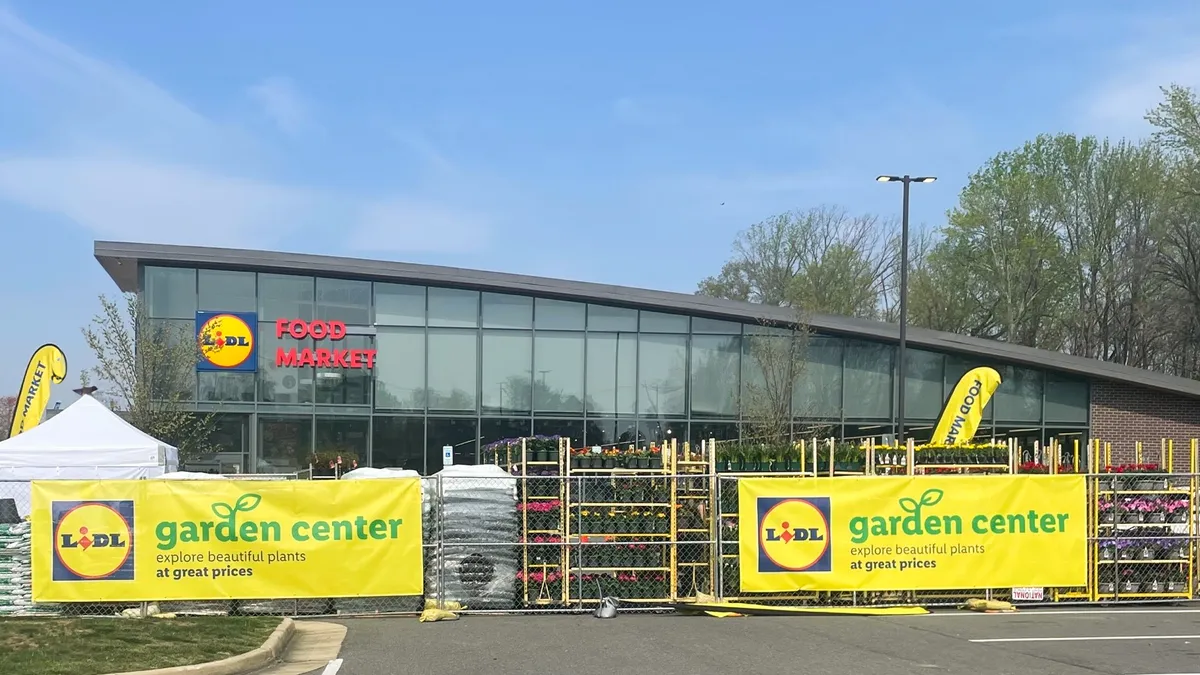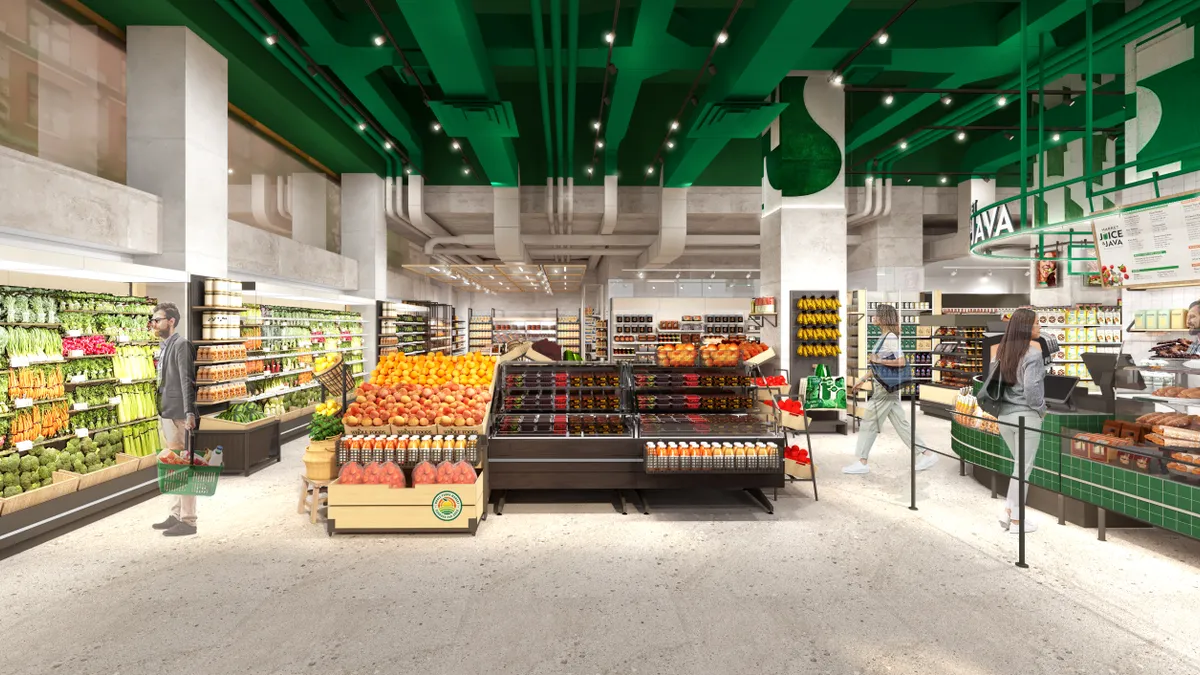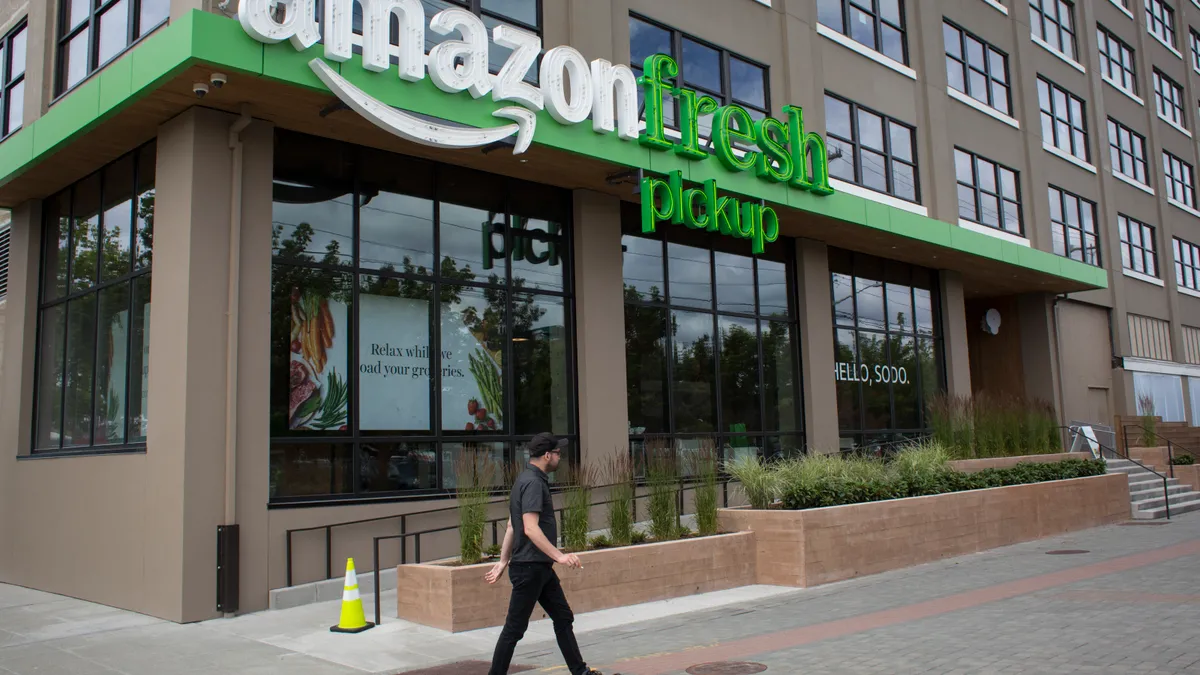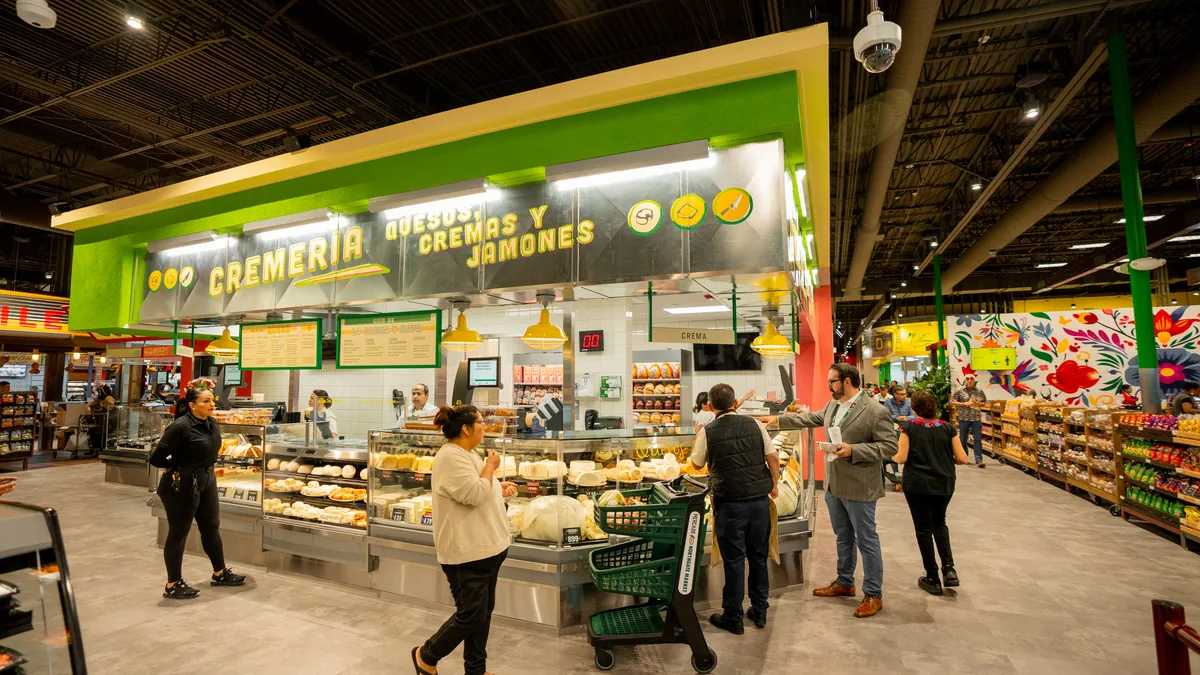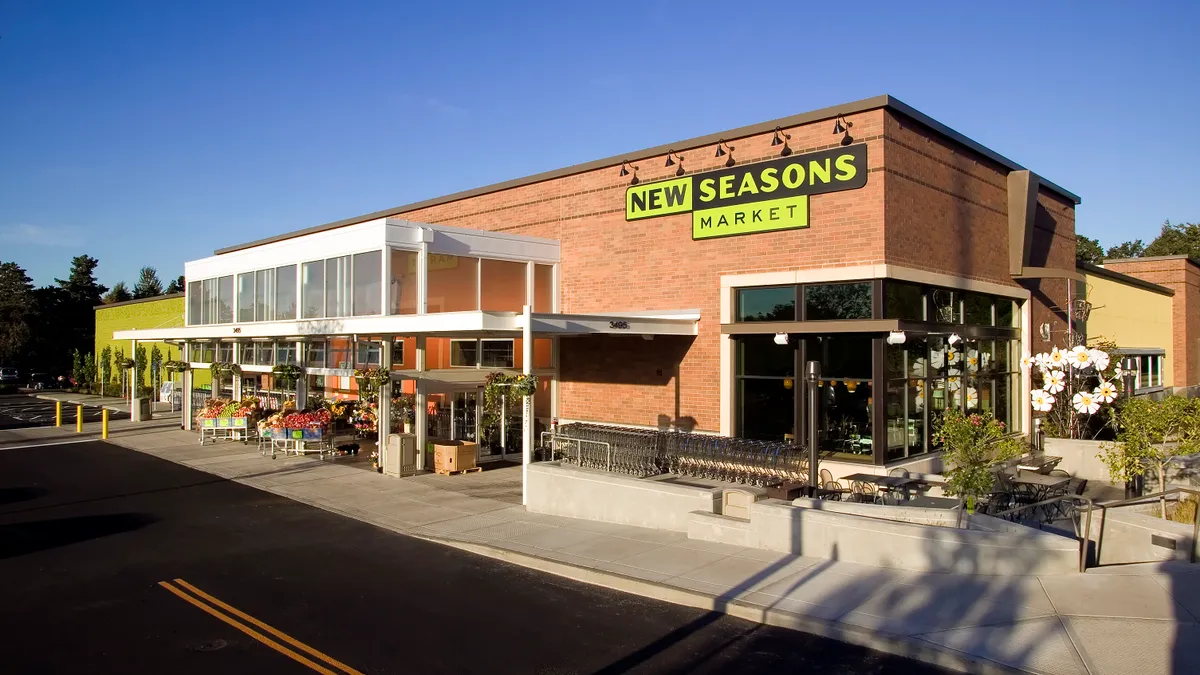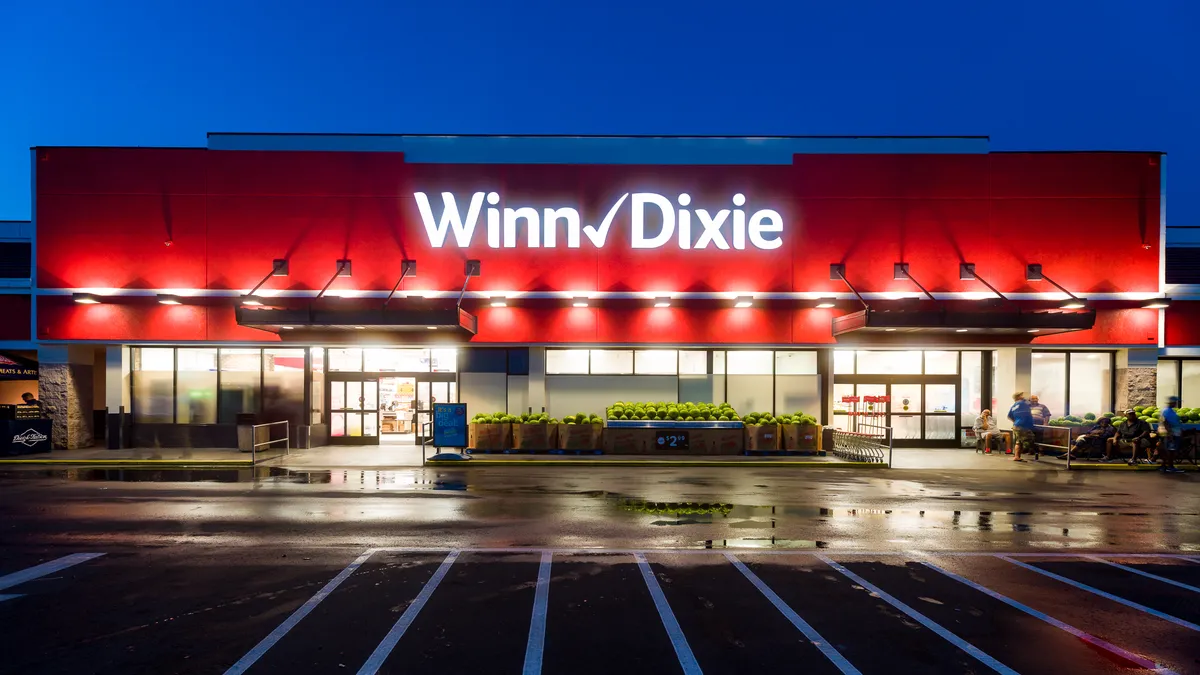Like many consumers, Bo and Trish Sharon couldn’t find a grocery store with reasonably priced natural and organic foods.
Unlike most people in their position, they decided to actually do something about it. In 2003, they started their own grocery store in Boulder, Colorado.
Fifteen years later, Lucky’s Market has grown to 33 locations in 11 states, primarily in the Midwest and Southeast. Building on its image as a quirky, friendly community gathering place, Lucky’s seeks to stake its claim in the natural and organic market with an emphasis on low frills and fresh, prepared foods.
Industry analysts say Lucky’s is well-positioned at a time when premium-priced natural and organic retailers are struggling. But it isn’t the only retailer taking a fresh look at the category. Upstarts like Sprouts Farmers Market and Fresh Thyme Farmers Market are making inroads, while mainstream grocers like Albertsons pump up their natural and organic private label selections.
And then there’s Whole Foods, which could transform specialty retailing under new owner Amazon.
Will Lucky’s Market prove it’s the new face of natural and organic grocery retailing, or will it get muscled out by the competition in crowded regions like Florida?
Sipping, strolling and saving
A Yelp reviewer recently wrote, ”If Aldi and Fresh Market/Whole Foods had a baby, it would be Lucky's Market.”
This sums up the sweet spot Lucky’s Market has pursued in an increasingly competitive grocery industry. Like Aldi, Lucky’s offers value-priced natural and organic foods, including numerous private label selections. And like Whole Foods, Lucky’s features a wide array of fresh foods to go along with a store experience that’s endearingly quirky. Although it's an all-natural grocer, Lucky’s Market promotes indulgence in moderation, selling goodies like bacon, deli meats, pizza and craft beers. Lucky’s selection of fresh, restaurant-quality prepared food is another key selling point for the company.
Bright, boldly colored signs that read “Food, Glorious Food” and “Peace, Love and Heirloom Tomatoes” adorn stores. Consumers can order a beer at the in-store pour station and even carry it around while they shop, thanks to handy cup holders attached to carts.
"Our slogan is 'Organic for the 99%,' meaning we try to make shopping for healthful foods more affordable to more people," Ben Friedland, vice president of marketing at Lucky's Market, told Food Dive.
Historically, shopping at health and natural foods stores was overwhelming and intimidating, said Jay Jacobowitz, president and founder of Retail Insights, a consulting company focused on the natural products and retailing industries. Mainstream customers were unfamiliar with many of the products offered.
“Even today, walking into a true natural-organic store, you’re likely to be confronted with a majority of products you’ve never seen before,” Jacobowitz told Food Dive. “You feel like you need a decoder ring to fit in.”
Lucky’s Market is one of a new breed of grocers seeking to lower that barrier to entry for many shoppers. It’s opened numerous stores in college towns, where its affordable-meets-affable vibe tends to go over well. In recent months, the chain has focused its growth in Florida, where a weak crop of legacy grocers, along with a growing population of millennials in cities like Orlando, present a distinct opportunity.
Last week, Lucky's announced what will eventually become its 13th store in the state, located in Cape Coral, near Fort Myers. By summer 2019, Lucky’s estimates it will have 22 locations in the state.
“Even today, walking into a true natural organic store, you’re likely to be confronted with a majority of products you’ve never seen before. You feel like you need a decoder ring to fit in.”

Jay Jacobowitz
president and founder, Retail Insights
Kroger’s friend in Florida
This Florida expansion isn’t just benefiting Lucky’s Market — it’s also a strategic move for one of the nation’s largest grocers.
In April 2016, Kroger announced a strategic investment in Lucky’s for an undisclosed amount. The buy-in would allow Lucky’s Market to accelerate its growth. Florida, Jacobowitz said, was a natural target for both companies.
“Kroger was weak in Florida, really no presence at all,” he said.
Lucky’s smaller size, averaging 30,000 square foot per store, means it fits into more potential locations than the typical 50,000-plus square foot grocery stores, Jacobowitz said. The chain also gives Kroger a foothold in the Sunshine State without having to go head-to-head with Publix.
And while Lucky’s Market is still a much smaller competitor than 280-store Sprouts Farmers Market, the aggressive push in Florida has allowed Lucky’s Market to arrive ahead of the Phoenix-based chain in key areas, Jacobowitz noted. Sprouts has five stores currently open in Florida, and plans to add additional locations in Tampa, Orlando and Naples. As a private company, financials for Lucky’s Market are hard to come by, but Jacobowitz estimates the chain will pull in $600 million in 2018 — still far behind Sprouts' 2017 net sales of $4.7 billion.
Lucky's Market knows the competition is fierce, and is looking at ways to stave it off — including expanding its services. Online ordering and same-day delivery has taken off in the wake of Amazon’s acquisition of Whole Foods last summer, and Lucky’s says it will jump on that bandwagon soon.
"Online grocery ordering is now table stakes," Friedland said. "A growing percentage of the population is buying groceries online and we need to have a presence there, which we will this year."
Is good fortune in Lucky’s future?
Lucky’s Market also faces a formidable challenge from mainstream grocers like Publix and Food Lion, both of which are investing in remodels to boost their stores’ “wow” factor. Publix is also building more small-format Greenwise stores, focused on natural and organic products, in the Southeast.
Meanwhile, mainstream grocers are targeting price in the natural and organic sector with their private label selections. Jet.com, which is owned by Walmart, now offers a line of grocery products aimed at millennials. A few retailers, Kroger and Albertsons included, have natural and organic private label brands with more than $1 billion in annual sales.
According to the Organic Trade Association, 2017 organic food sales reached $43 billion in the United States, accounting for 5.3% of total food sales.
“The natural grocery space is growing at a much faster rate than conventional foods. That’s the good news,” Neil Stern, senior director with retail consultancy McMillanDoolittle, told Food Dive. “The bad news is competitors have figured that out. There is a lot more direct competition as well as conventional grocers carrying a lot more assortment. And all grocers face the growth of online competition, with Amazon-Whole Foods sending serious shock waves across the whole retail food market.”
Despite all of this, Stern says, Lucky’s Market is in a good place.
“I think Lucky’s has a combination of authenticity, combined with approachability that makes it stand out among its rivals,” he said.
Lucky’s ability to take advantage of Kroger’s wholesale supply chain will add to its success, Jacobowitz added.
Still, changes will continue to affect the natural and organics market, Stern said.
“Organic is big, but beginning to be replaced by local and traceability,” he noted. He also anticipates more newcomers to enter the market with a unique angle, and expects more as big chains try to align with natural and organic chains.
Lucky’s Market is intent on staying ahead of the pack. With the financial and structural backing of Kroger, along with the store's ability to build a loyal following, the odds seem to favor this natural and organic chain.
According to Friedland, the company's main priority is continuing to build on the store experience that has drawn so many customers over the years.
"We will continue to focus on the Lucky’s experience to ensure it is not just about shopping for groceries, but participating in a true celebration of food," he said. “Lucky’s is a social hub within the community where people can come to for more than just checking items off their grocery list."






